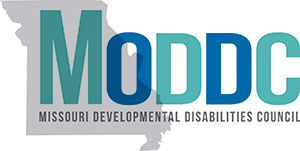Missouri Developmental Disabilities Council WE CARE (Wellness, Education, Confidence, Assessment & Recognizing Emergencies)
Project Grantee: Association on Aging with Developmental Disabilities (AADD)
Project Background
More individuals with developmental disabilities are living longer and face age-related changes in their health, retirement, finances, mobility, and community involvement. Individuals with I/DD are also outliving parents who are often their primary caregivers. As these caregivers continue to grow older, they often become less able to provide care for their loved one as they may also have to address their own health problems, physical disabilities, and other age-related concerns. This inability to care for their loved one with I/DD causes additional stress and anxiety on current care and on planning for the future. With a growing number of Missourians who are aging, our system must better understand these unique needs to adequately support older individuals with developmental disabilities and their caregivers during this life stage.

Project Description
AADD will create, implement, and evaluate a Family Care at Home (FCH) curriculum that would be offered to individuals with developmental disabilities living at home in a mutual caregiving arrangement with an aging loved one. Many adults with developmental disabilities (DD) live at home with their caregivers. As caregivers age and their needs change, the family member with DD may take on additional tasks to support their caregiver, often with little or no formal guidance or training. The FCH training is a promising practice to teach people with DD the skills necessary to recognize and respond to their loved one’s basic care and home safety needs. The long-term goal of these efforts is to
increase the ability of both family members to support each other and prolong the mutual caregivers’ abilities to age-in-place in the family home. The alternative to aging in place is often long-term care placement, which comes at higher monetary cost to the community, causes a higher emotional cost to the individual with DD, and disrupts the family unit.
Project Lead
Michelle L. Darden, MA
Program Development Coordinator
Association on Aging with Developmental Disabilities
michelled@agingwithdd.com
(p) 314-647-8100
(f) 314-647-8105

